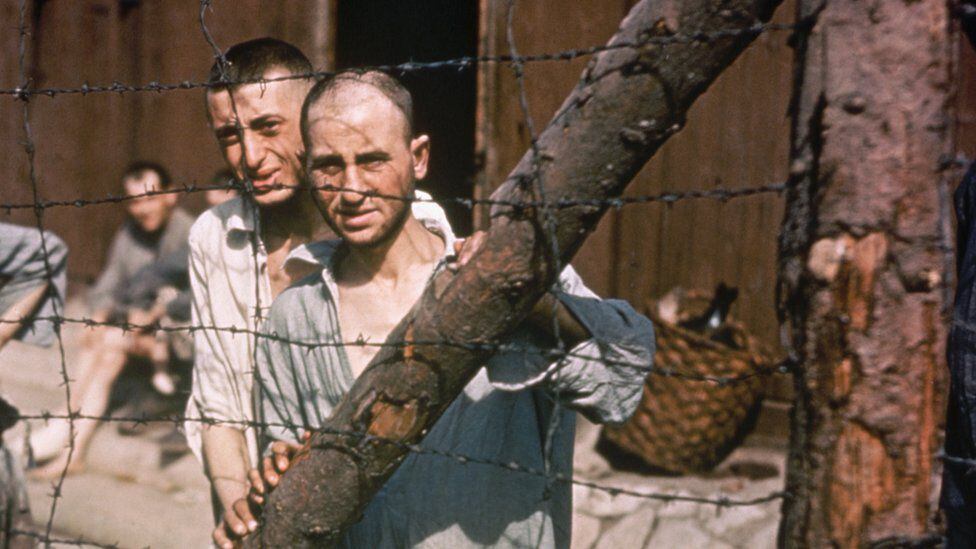The last prosecutor left alive from the Nuremberg trials, held after the World War IIpassed away on Friday at the age of 103.
Ben Ferencz was just 27 years old when he secured the convictions of 22 Nazi officers for war crimes and crimes against humanity.
LOOK: Who were the “Trümmerfrau” and why were they essential for Germany after its defeat in World War II
He later advocated for the establishment of an international tribunal to prosecute war crimes, a goal he achieved in 2002.
Ferencz passed away in her sleep Friday night at an assisted living facility in Bonynton Beach, Florida, United States.
“Today the world lost a leader in the search for justice for the victims of genocide,” the US Holocaust Museum said confirming his death.
Information gathering
Ferencz was born in Transylvania – part of Romania – in 1920, but his family immigrated to the US when he was young to escape anti-Semitism, later settling in New York.
After graduating from the Harvard Law School in 1943, it enlisted in the us army and participated in the Allied invasion of Normandy in the Battle of the Bulge.
He rose to the rank of sergeant and eventually joined the group dedicated to investigating and collecting evidence of Nazi war crimes.
The team worked alongside the army in Germany and entered the concentration camps as they were liberated, taking note of the conditions in each one and interviewing the survivors.
In a later account of his life, Ferencz spoke of finding bodies “piled up like firewood” and “helpless skeletons with diarrhoea, dysentery, typhus, tuberculosis, pneumonia and other diseases, vomiting in their bunks or on the floor, pleading for help.” only with his pathetic eyes.”
Ferenz described Buchenwald – one of the largest concentration camps in Germany – as a “charnel house of indescribable horrors“.
“There is no doubt that I was forever traumatized by my experiences as a war crimes investigator in Nazi death camps,” he wrote. “I still try not to talk or think about the details.”
nuremberg trials
After the war, he returned to New York to practice as a lawyer, but was recruited soon after to try Nazis at the Nuremberg trials, despite having no prior trial experience.
was designated chief prosecutor in the trials of the members of the einsatzgruppenthe mobile death squads of the SS that operated within Nazi-occupied Eastern Europe, and which are estimated to have murdered over a million people.
Of the 22 men tried in the trial, all were convicted. 13 of them were sentenced to death and four were eventually executed.

When the trials ended, Ferencz – who was fluent in six languages, including German – remained in West Germany and helped Jewish groups obtain repair agreements of the new government.
In his later years, he became a professor of international law and campaigned for the establishment of an international tribunal that could try government leaders who had committed war crimes, writing several books on the subject.
In 2002, the International Criminal Court in The Haguein the Netherlands, although its effectiveness has been limited by the refusal of several major countries, including the US, to join.
Ferencz leaves behind a son and three daughters. His wife – his childhood sweetheart Gertrude Fried – passed away in 2019.
Source: Elcomercio
I am Jack Morton and I work in 24 News Recorder. I mostly cover world news and I have also authored 24 news recorder. I find this work highly interesting and it allows me to keep up with current events happening around the world.

:quality(75)/cloudfront-us-east-1.images.arcpublishing.com/elcomercio/GE3DCMJNGA2C2MBZKQYDAORRGY.jpg)



:quality(75)/cloudfront-us-east-1.images.arcpublishing.com/elcomercio/R3SCFKKATBDIVF7W6HD4SZMEAU.jpg)
:quality(75)/cloudfront-us-east-1.images.arcpublishing.com/elcomercio/HFBLKGWGLZGBPGNSQ7B7PPX4KU.jpg)
